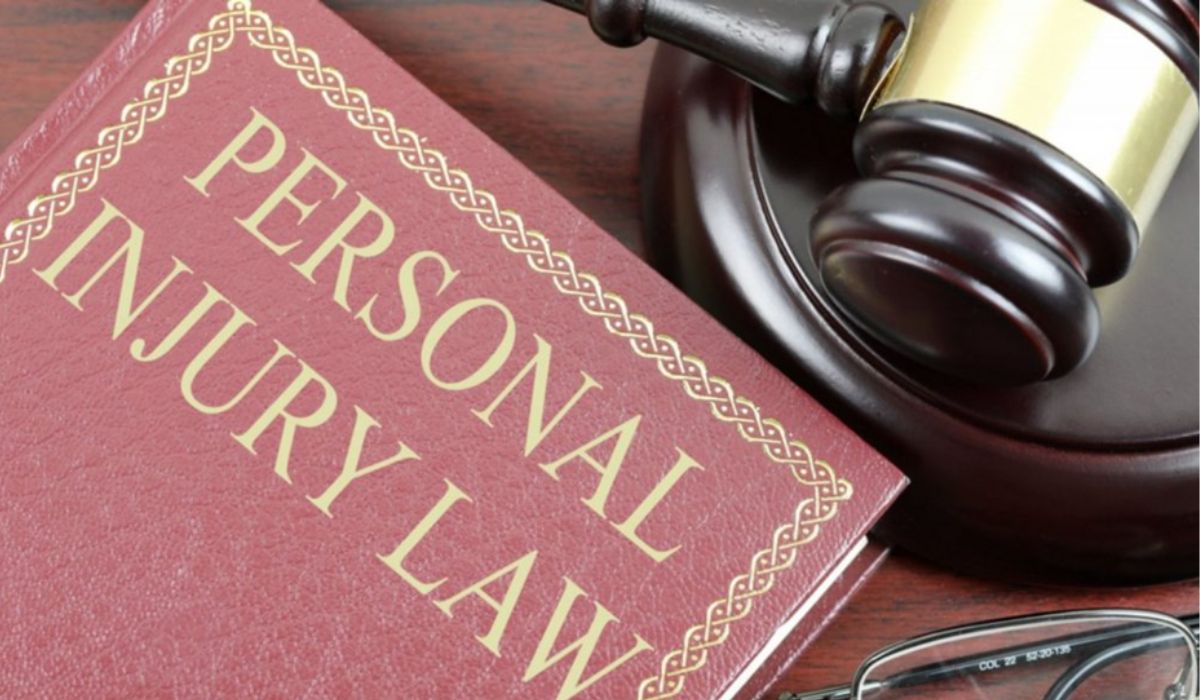LAW
5 Personal Injury Law Concepts That a Queens PI Lawyer Wants You to Know

Navigating the legal landscape of personal injury claims can be daunting, especially in a bustling area like Queens. According to the New York State Department of Health, over 146,000 people in New York were hospitalized due to unintentional injuries last year.
A large number of these incidents occurred in Queens alone. According to top Queens personal injury lawyers, these statistics highlight the importance of understanding a few essential concepts in personal injury law.
Here are five personal injury law concepts that a Queens personal injury lawyer wants you to know.
Statute of Limitations
One of the most critical concepts in personal injury law is the statute of limitations. This refers to the time limit for filing a lawsuit after an injury.
In New York, the statute of limitations for most personal injury cases is three years from the date of the accident. However, this period can vary depending on the specifics of the case.
Understanding the statute of limitations is crucial because if you fail to file your claim within this period, you may lose your right to seek compensation entirely.
Comparative Negligence
New York follows the principle of comparative negligence, which can significantly impact the outcome of a personal injury case. Under this rule, the compensation you can receive is reduced by your percentage of fault in the accident.
For example, if you are found to be 20% at fault for a car accident and the total damages amount to $100,000, your compensation would be reduced by 20%. This will leave you with $80,000.
This concept emphasizes the importance of accurately establishing fault in a personal injury case.
Damages
In personal injury cases, “damages” refer to the compensation awarded to the injured party. There are several types of damages that a victim can claim, including:
- Economic Damages: These cover tangible losses such as medical expenses, lost wages, and property damage.
- Non-Economic Damages: These cover intangible losses like pain and suffering, emotional distress, and loss of enjoyment of life.
- Punitive Damages: In cases involving gross negligence or intentional harm, the court may award punitive damages to punish the wrongdoer and prevent similar behavior later.
Understanding the different types of damages is essential because it affects the overall value of your claim.

Causation
Causation establishes the link between the defendant’s actions and the plaintiff’s injuries. It involves proving that the defendant’s conduct directly caused the harm.
A plaintiff cannot succeed in a personal injury claim without proving causation.
Strict Liability
This is a crucial concept in personal injury law that holds a party responsible for causing harm, regardless of fault or intent. Unlike negligence, where the plaintiff must prove that the defendant failed to exercise reasonable care, strict liability does not require the plaintiff to show that the defendant was careless.
This doctrine is often applied in cases involving inherently dangerous activities or defective products. For example, manufacturers can be held strictly liable if a product they produce is faulty and causes injury, even if they took all reasonable precautions during manufacturing.
Conclusion
Personal injury law can be complex, but understanding these five key concepts can empower you to navigate the process more confidently. As a result, you will get the best from your claim. Don’t hesitate to seek the services of an experienced personal injury lawyer to get maximum compensation for your losses.
LAW
Why the Legal Sector Needs Couriers It Can Actually Rely On

Law doesn’t leave much room for error. Deadlines aren’t gentle. Miss one, and you’re not just behind schedule.. you could be staring down a postponed hearing, a deal gone cold, or a deeply unimpressed client. Which is why legal professionals don’t just need delivery services. They need something sharper. Quieter. More dependable. They need a reliable courier service that gets the weight of what’s riding inside that envelope.
Because in this line of work, you’re not sending shoes or stationery. You’re sending someone’s future. Or at least the paperwork that might shape it.
Urgency Isn’t a Feature; It’s the Job
Time pressure is baked into the legal process. There’s always a filing window about to close, a contract that needs signing by sundown, or a bundle of evidence heading to chambers for tomorrow’s case. And there’s very little tolerance for “Sorry, we tried.”
A courier for legal documents needs to move like they’ve read the room. They need to collect fast – sometimes within the hour.. and deliver without taking the scenic route. And yes, same-day delivery’s a must. But it’s not just about speed. It’s about showing up, every time, with zero fuss and no excuses.
Confidential Means Confidential
Here’s the thing; legal paperwork isn’t just time-sensitive. It’s sensitive, full stop. Names, numbers, deals, disputes. All of it private. All of it potentially explosive in the wrong hands.
That’s why using a standard delivery service, the kind that tosses your envelope into a van with ten birthday presents and a broken printer, just doesn’t cut it. A good courier for legal documents understands discretion. They get the need for direct delivery. No pit stops. No swapping hands. Ideally, it’s one person from pick-up to drop-off, and you know exactly who it is the whole way through.
It’s About More Than Delivery
Here’s where the nuance comes in. Legal work isn’t just high-stakes.. it’s unpredictable. Court schedules shift. Clients cancel. Deadlines creep forward when no one’s looking. So the people moving your documents? They can’t just be quick. They’ve got to be adaptable. A bit unflappable. Ideally, they’ve been around legal folk before and know how to read the mood.
A reliable courier service doesn’t wait to be asked twice. They update you before you wonder. They handle the awkward logistics, like finding the one open entrance to a courthouse at 4pm – without kicking up a fuss. You barely notice they’re there. Which, honestly, is kind of the point.
Reputation Travels Fast
The legal sector runs on precision, yes. But it also runs on perception. Clients trust you with the big stuff, their contracts, their claims, their peace of mind. So if your documents don’t turn up on time, or worse, go missing altogether, that trust frays a little. And it’s hard to stitch back.
Which is why outsourcing deliveries to someone who actually gets what’s at stake isn’t an indulgence, it’s smart. It means one less thing to worry about. One more part of your day that just… works.
In the End, It’s About Trust
Not every courier is right for the legal world. It takes a certain kind of service.. FAST, yes, but also discreet, alert, and stubbornly reliable, to move documents in this space. So if you’re in law and still juggling deliveries yourself, or relying on patchy services that keep you holding your breath… maybe it’s time.
Because when the clock’s ticking and the stakes are high, trust isn’t a luxury. It’s the only thing that matters.
LAW
Drive Social Media Lawsuit: Allegations & Industry Impact

Clients have accused Drive Social Media of making exaggerated claims regarding potential returns on investment. Allegations suggest that the agency misrepresented the effectiveness of its strategies, leading clients to invest substantial sums based on inflated promises. For instance, a retail e-commerce brand reportedly invested over $500,000 but experienced results that fell significantly short of expectations.
Unethical Billing Practices
The lawsuit also highlights concerns about billing practices. Clients claim they were charged for services not rendered or faced hidden fees not disclosed upfront. Such practices have led to disputes over payments and a loss of trust in the agency’s financial dealings.
Data Misrepresentation
Another serious accusation involves the manipulation of performance data. Clients allege that Drive Social Media provided skewed analytics, inflating metrics like engagement, traffic, and conversions. This alleged data falsification misled clients about the success of their campaigns.
Labor Law Violations
Former employees have come forward with allegations of labor law violations, including unpaid wages, lack of overtime pay, and insufficient breaks. Additionally, claims of workplace discrimination based on race and gender have surfaced, further complicating the agency’s legal challenges.
Legal Proceedings and Current Status
The lawsuit has progressed through various legal stages, with both parties presenting evidence and arguments. As of now, the case remains ongoing, with no final verdict reached. The proceedings have drawn attention from industry observers, eager to see how the legal system addresses these serious allegations.Lawexpertise
Industry Implications
The Drive Social Media lawsuit serves as a cautionary tale for businesses engaging digital marketing agencies. It underscores the importance of due diligence, transparent contracts, and clear communication. Businesses are advised to scrutinize service agreements, demand regular performance reports, and be wary of agencies offering guarantees that seem too good to be true.
Conclusion
The Drive Social Media lawsuit has illuminated potential pitfalls in the digital marketing industry, emphasizing the need for ethical practices, transparency, and accountability. As the legal proceedings continue, businesses and marketing professionals alike should reflect on the lessons learned to foster a more trustworthy and effective marketing environment.
FAQs
What is the Drive Social Media lawsuit about?
The lawsuit involves allegations against Drive Social Media for misleading marketing practices, unethical billing, data misrepresentation, and labor law violations.
How has the lawsuit impacted the digital marketing industry?
The case has heightened awareness about the importance of transparency and ethical conduct in digital marketing, prompting businesses to be more cautious when selecting agencies.
What can businesses learn from this lawsuit?
Businesses should ensure clear and transparent agreements with marketing agencies, demand regular and verifiable performance reports, and be cautious of agencies offering unrealistic guarantees.
Is the lawsuit still ongoing?
Yes, as of now, the lawsuit is ongoing, with both parties presenting their arguments and awaiting a final verdict.
Where can I find more information about the lawsuit?
For detailed information, you can refer to legal analyses and news articles available on reputable law and business websites.
LAW
Patel Bakersfield City Council Threats: Legal Community Impact

Introduction
In April 2024, Riddhi Patel, a 28-year-old Bakersfield resident, made headlines after allegedly threatening members of the Bakersfield City Council during a public meeting. This incident has sparked widespread discussions about public discourse, legal accountability, and community safety. This article delves into the details of the event, the subsequent legal proceedings, and the broader implications for the Bakersfield community.
The Incident
On April 10, 2024, during a Bakersfield City Council meeting, Riddhi Patel was escorted out after making verbal threats against council members. These threats were reportedly related to a resolution concerning a Gaza ceasefire. Patel’s actions drew immediate attention and raised concerns about the safety of public officials and the conduct of public meetings.
Legal Proceedings
Following the incident, Patel faced multiple felony charges. She was accused of making death threats toward the Bakersfield City Council, leading to her appearance in court for hearings. The legal proceedings have been closely followed, highlighting the serious consequences of threatening public officials.
Community Impact
The threats against the Bakersfield City Council have had a profound impact on the local community. Residents have expressed concerns about the safety of public officials and the potential chilling effect on public discourse. The incident has sparked discussions about the balance between free speech and the need to protect individuals from threats and harassment.
Comparative Analysis: Legal Consequences for Threatening Public Officials
To provide a broader perspective, here is a comparison of legal consequences for individuals who threaten public officials in various jurisdictions:
| Jurisdiction | Legal Consequences | Notable Cases |
|---|---|---|
| United States | Federal and state laws impose severe penalties, including imprisonment and fines. | Riddhi Patel’s case in Bakersfield, California. |
| United Kingdom | Offenses under the Malicious Communications Act can lead to imprisonment. | Case of a man jailed for sending threatening letters to MPs. |
| Canada | Criminal Code provisions allow for prosecution with potential imprisonment. | Individual convicted for threatening a Member of Parliament. |
| Australia | Laws against threatening communications can result in significant penalties. | Person sentenced for sending threatening emails to a senator. |
| Germany | Threatening public officials is a criminal offense with potential jail time. | Case of a man convicted for threatening a local mayor. |
Conclusion
The case of Patel Bakersfield City Council Threats against the Bakersfield City Council underscores the critical importance of maintaining respectful and lawful communication within democratic societies. It highlights the need for legal frameworks that protect public officials from threats while safeguarding the fundamental right to free speech. As the legal proceedings continue, the community remains vigilant, reflecting on the balance between individual rights and public safety.

 Cartoon1 year ago
Cartoon1 year agoUnlocking the Potential of Nekopoi.care: A Comprehensive Guide

 Game1 year ago
Game1 year agoExploring Aopickleballthietke.com: Your Ultimate Pickleball Destination

 BUSINESS1 year ago
BUSINESS1 year agoWhat Companies Are In The Consumer Services Field

 BUSINESS1 year ago
BUSINESS1 year agoUnraveling the Mystery of 405 Howard Street San Francisco charge on Credit Card

 HOME IMPROVEMENT1 year ago
HOME IMPROVEMENT1 year agoVtrahe vs. Other Platforms: Which One Reigns Supreme?

 TECHNOLOGY1 year ago
TECHNOLOGY1 year agoThe Guide to Using Anon Vault for Secure Data Storage

 ENTERTAINMENT11 months ago
ENTERTAINMENT11 months agoUnderstanding Bunkr Album: A Comprehensive Guide

 ENTERTAINMENT1 year ago
ENTERTAINMENT1 year agoThe Epic Return: Revenge of the Iron-Blooded Sword Hound
















